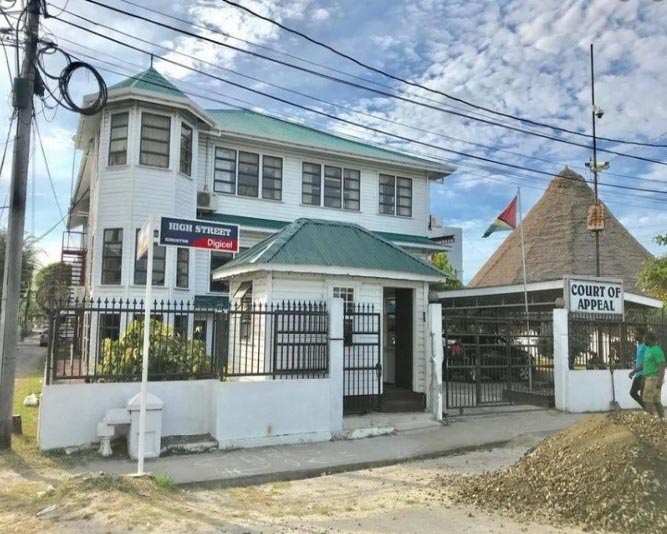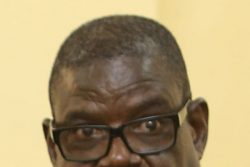The Guyana Court of Appeal is slated to rule on December 21 on whether it has jurisdiction to hear the appeal filed by the main opposition APNU+AFC against the dismissal of one of its two petitions challenging the March 2, 2020 General Elections.
At the same time, the appellate court is expected to make pronouncements on whether it may have been the Full Court of the High Court to which the appeal should have been laid.
When the matter came up for reports yesterday morning, acting Chancellor Yonette Cummings-Edwards announced that the Bench—also comprising Justices of Appeal Dawn Gregory and Rishi Persaud—will deliver its ruling on Tuesday, December 21 at 2pm.
During previous hearings, the Court heard arguments from lawyers for the appellants and respondents on the preliminary issue of its jurisdiction and why it can and cannot hear the case.
It had been during the course of those arguments that the enquiry of a possible appeal to the Full Court came to the fore.
In January, acting Chief Justice Roxane George SC threw out the petition after finding that APNU+AFC presidential candidate David Granger was not served on time.
Trinidadian Senior Counsel Douglas Mendes, who represents now President Irfaan Ali and Vice President Bharrat Jagdeo—who are among the number of respondents listed in the action—has argued that the appeal court has no jurisdiction to hear the matter.
Mendes’ contention has been that the purported appeal falls outside of the requirements created in Articles 163 (3) of the Constitution, and for this reason there is in the first place no appeal, and secondly, that the Court of Appeal has no jurisdiction to hear the matter.
Attorney General Anil Nandlall SC, who has also been listed as a respondent in the action, shared the sentiments expressed by Mendes.
The two attorneys have advanced that when the Chief Justice threw out the petition, that decision was not in relation to a final order of the court, and is therefore not capable of being appealed.
They have argued that in accordance with 163 (3), an appeal would only have been permitted if the substantive petition had been heard in its entirety.
Meanwhile, on the issue of the Full Court possibly hearing the appeal as opposed to the Court of Appeal, Nandlall has argued that the Full Court has no jurisdiction to hear any matter arising out of anything connected with an election petition.
The AG’s position is that the Court of Appeal itself has no jurisdiction to hear the appeal currently before it, since it did not stem from the hearing by the High Court, of the substantive petition.
However, Attorney Roysdale Forde SC, who represents petitioners Monica Thomas and Brennan Nurse, in whose names the coalition’s petition was filed, has argued that the appellate court does have jurisdiction to hear the matter.
The petitioners subsequently appealed the ruling, arguing, among other things, that the Chief Justice erred in law and misdirected herself by misapplying the doctrine of strict compliance and holding that such compliance related to the contents of the affidavit of service instead of the filing of the affidavit of service in a timely manner.
The petitioners’ contention is that the elections were unlawfully conducted and/or that the results (if lawfully conducted) were affected or might have been affected by unlawful acts or omissions. They nonetheless argue that from those polls it is Granger who should be declared the duly-elected President of Guyana.
They were seeking to have the court nullify the outcome and to declare President Irfaan Ali to be illegally holding office.
The results of a national recount of all ballots cast showed that it was the PPP/C which had won the general elections with 233,336 votes over the coalition’s 217,920 votes.
The second of the filed petitions, which has also been lost, is also before the Court of Appeal. It has not yet been called.









